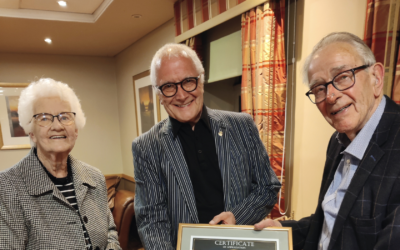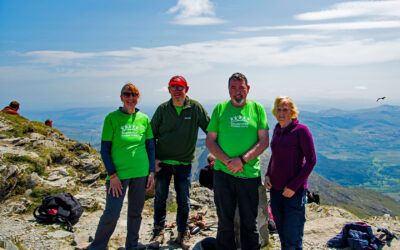Rotary clubs have been urging their local councils to become peat-free and have signed up for the peat-free initiative of 2021.
Spring is in the air and gardeners will be stocking up with plants, seeds and potting compost. In doing so, unconsciously, contributing to climate change by using peat-based products.
Peat bogs are exceptionally important ecosystems, although only occupying 3% of the surface of the planet, they hold as much carbon as all the vegetation in the world put together.
As well as being a very important carbon sink, peat bogs make a vital contribution to water quality, flood prevention and flora and fauna diversity.
The UK Government will, subject to consultation, ban the use of this material for amateur use in 2024, and in 2030 the restriction will extend to commercial use.
Recognising the unsustainability of peat in compost, in 2017, the Nailsworth Rotary started to use a peat-free product in their floral troughs.”
When the surface of a peat bog is harvested for the peat, the stored carbon rapidly oxidises to carbon dioxide, directly impacting global warming.
The majority of peat sold in the UK is imported from Ireland, Germany and the Baltic States, although a small amount is still harvested from the lowland peat bogs of Somerset.
There is therefore a need to eliminate the use of peat.
The UK Government will, subject to consultation, ban the use of this material for amateur use in 2024, and in 2030 the restriction will extend to commercial use.
Recognising the unsustainability of peat in compost, in 2017, the Nailsworth Rotary Club (District 1100) started to use a peat-free product in their floral troughs.
The product, SylvaGrow, was donated by a local manufacturing company, Melcourt. The results have been consistently good and have inspired others to switch from peat.
There are now a number of peat-free composts (now called growing media) available. They are mainly based on composted bark, wood fibre and coir (fibrous waste from coconuts), together with a slow-release fertiliser.
There is also a product based on sheep’s wool, which has recently been judged as a ‘best buy’ in ‘Which?’ Gardening. This magazine has also demonstrated that some of these growing media produce results to equal peat when used for both sowing and planting purposes.
As well as being a very important carbon sink, peat bogs make a vital contribution to water quality, flood prevention and flora and fauna diversity.”
The Royal Horticultural Society (RHS) has taken a lead in research into peat-free media and all plants grown and sold by that organisation exclusively involve the use of peat-free composts.
Nailsworth Rotary is in the process of producing a booklet on the peat compost situation which is being sponsored by a major Garden centre chain. RHS has given permission for their own quotes and information to be used. This will be available to all interested clubs shortly.
It is fortuitous that via the Environmental Sustainability Rotary Action Group (ESRAG), the enthusiasm of both Nailsworth and Kings Lynn Priory clubs has been united to pool our enthusiasm for peat-free.
Rotary is active in preserving the environment and displaying an example of how effective our organisation can be in spreading the good word, inspiring change and leaving a proud legacy for future generations









